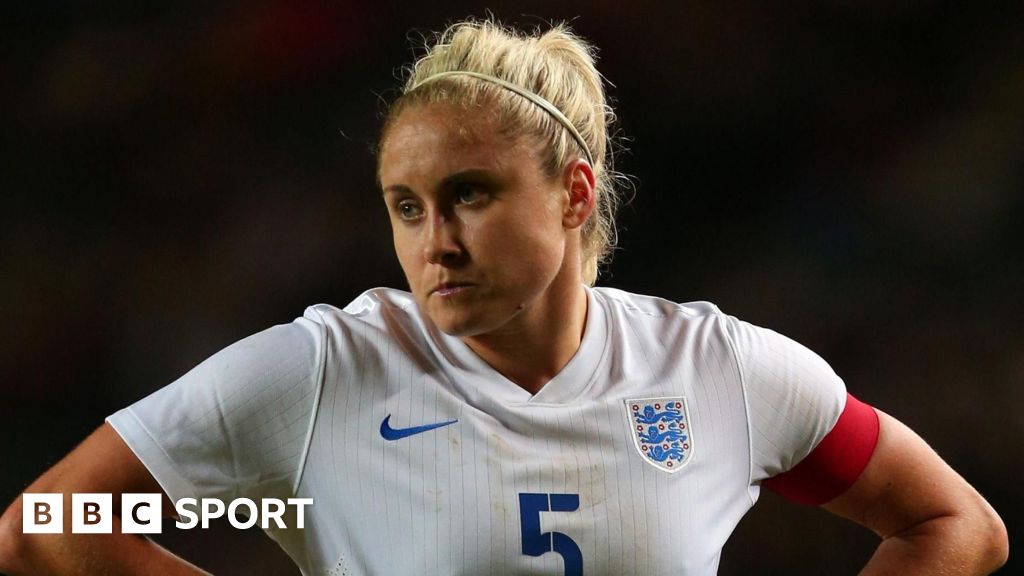“It was never about the money when I joined Arsenal,” says Steph Houghton. “Now I look back at those figures and I think ‘oh my god’.”
In 2012, Houghton was one of the best female centre-backs in England – for which she was paid £4,000 a year by Arsenal, the most successful women’s team in the country at that time.
Bonuses and extra work as a part‑time coach and club ambassador lifted that figure to £9,000.
“I was living in London, although I was fortunate that the club paid for the apartment,” Houghton, who won 121 caps for England and captained her country from 2014 to 2021, told BBC Radio 5 Live Breakfast.
“At the same time, to live off that and try and save for a house, simple things we all do as human beings, it was quite tough to do.”
Houghton, who retired from playing at the end of last season, is credited with helping to change the course of professional football for women.
In her autobiography Leading From The Back, the three-time Women’s Super League winner details the struggles she endured as she fought for better pay.
Today, some of the very best players in the WSL are reported to earn hundreds of thousands of pounds, external a year.
It was a different story 12 years ago.
“I came from the north-east. My mum and dad did not have much money and I’m from a working class family,” Houghton told BBC Radio 4’s Woman’s Hour on Friday.
“I came from a pit village [South Hetton], so for me money was never really a driving factor.
“But I had the opportunity to move to Arsenal. I wanted to go there and win trophies, I wanted to establish myself in the England set-up and play with the best players.”
Houghton, who joined Arsenal in 2010, became increasingly determined to stand up for herself when it came to re-negotiating her contract.
“To be going in there by myself to speak about something was tough because the guy that I was speaking to, Vic Akers, who is an absolute legend in the women’s game, to have that conversation with someone who has brought you to the club was tough,” she adds.
“It was scary and it was daunting. I would have been only 22, 23 then, so quite young in terms of not that much experience.
“But I had to stand up for myself.”
Houghton went on to become the first female player to appear on the cover of Shoot magazine, was made an MBE and received the Freedom of the City in Sunderland.
She also led England during a significant period of growth for women’s football, managing increased scrutiny, expectation and media attention, as well as guiding the next generation.

